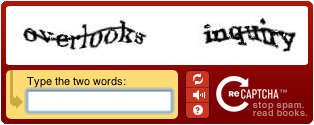Though I now have ready access to Google Translate and other online translation tools, I still find word lists helpful.
A major part of that is that:
(1) word lists include genealogy-specific terms
(2) sometimes the language used in older documents is considered archaic and not always part of online translators or dictionaries
These are always examples of genealogists helping genealogists.
I was reminded of this when I re-reviewed the commonly used words translated lists created back in 2015 by Relatively Curious about Genealogy. The languages included are Czech, Danish, French, German, Italian, Polish, Spanish, Afrikaans, Finnish, Hungarian, Latin, Norwegian, Portuguese, and Swedish.
And, FamilySearch still has the word lists it created years ago. These are still invaluable and the wiki page Word List is the easiest way to access these. Back in the day I used the Finnish, Swedish, German and Polish versions exhaustively as I researched Finnish and Ruthenian ancestors.
Cyndi’s List has a page Languages & Translations >> Foreign Language Translations & Dictionaries: Genealogy which is also quite useful.
Do a google search on “genealogy” and “word list” and many others will come up such as the Norwegian Genealogy Dictionary, Old Flemish Words, and numerous other helpful websites.
What is your favorite genealogical word list?
.
~~~~~~~~~~~~~~~~~~~~
copyright © National Genealogical Society, 3108 Columbia Pike, Suite 300, Arlington, Virginia 22204-4370. http://www.ngsgenealogy.org.
~~~~~~~~~~~~~~~~~~~~~
NGS does not imply endorsement of any outside advertiser or other vendors appearing in this blog. Any opinions expressed by guest authors are their own and do not necessarily reflect the view of NGS.
~~~~~~~~~~~~~~~~~~~~~
Republication of UpFront articles is permitted and encouraged for non-commercial purposes without express permission from NGS. Please drop us a note telling us where and when you are using the article. Express written permission is required if you wish to republish UpFront articles for commercial purposes. You may send a request for express written permission to UpFront@ngsgenealogy.org. All republished articles may not be edited or reworded and must contain the copyright statement found at the bottom of each UpFront article.
~~~~~~~~~~~~~~~~~~~~~
Think your friends, colleagues, or fellow genealogy researchers would find this blog post interesting? If so, please let them know that anyone can read past UpFront with NGS posts or subscribe!
~~~~~~~~~~~~~~~~~~~~~
Suggestions for topics for future UpFront with NGS posts are always welcome. Please send any suggested topics to UpfrontNGS@mosaicrpm.com
~~~~~~~~~~~~~~~~~~~~~
Unless indicated otherwise or clearly an NGS Public Relations piece, Upfront with NGS posts are written by Diane L Richard, editor, Upfront with NGS.
~~~~~~~~~~~~~~~~~~~~~
Want to learn more about interacting with the blog, please read Hyperlinks, Subscribing and Comments -- How to Interact with Upfront with NGS Blog posts!
~~~~~~~~~~~~~~~~~~~~~










